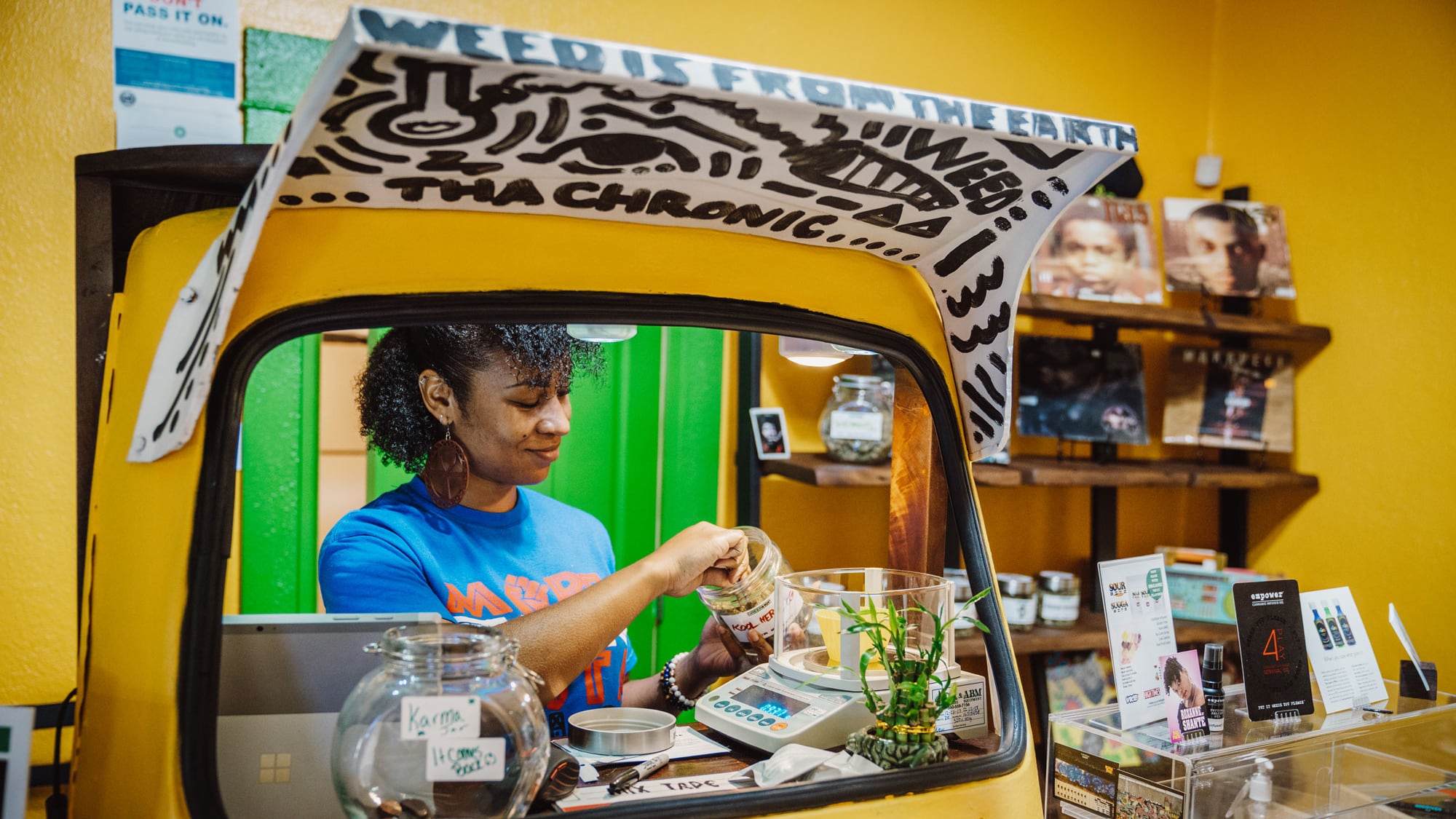Smoking weed is a political statement.
Whether you’re a patient medicating a chronic disorder or a recreational user just brightening an otherwise gray day, your stash tells an epic story of crime, punishment, entitlement and subjugation that doesn’t typically make it onto the labels. Especially now, in our contemporary cannabis accessibility era, it requires a bit of fortitude to develop an equitable style of consumerism in what has been, for decades, a severely inequitable space.
Legally purchasing and using cannabis is a hard-fought privilege that many of our most vulnerable community members sacrificed tremendously for, so it stands to reason that as informed consumers, we should be vigilant about creating a cannabis industry that does more than provide new opportunities for wealth—and adamant about supporting companies that are just as concerned with righting the wrongs of the past as they are with establishing a more accessible and equitable future.
Cannabis is more than a product. It’s a medicine you can grow in your kitchen, a recreational alternative to deadly narcotics and hard booze, and a potential solution to legacies of injustice and poverty. The following organizations are maintaining that ethos while pioneering a more righteous industry for us all.
BIPOC-Owned Brands to Patronize:
Magic Hour
Owned by Adriana Ruiz Carlile and Will Perry, this organic cannabis farm is located right outside Portland proper and is one of the only minority-run and woman-owned and -operated cannabis businesses in the country.
Green Muse
Northeast Portland’s historically Black neighborhood’s own Black-owned mom-and-pop dispensary also possesses deep hip-hop history museum vibes, self-designating the shop “The First Hip Hop Dispensary.”
Pot Mates
Black, LGBTQ, and veteran-owned Pot Mates is a pretty straightforward cannabis delivery business, albeit with a masterfully curated store and prompt, friendly delivery.
Club Sky High
St. Johns’ favorite spot for “moon rocks” (i.e., nugs drenched in extract and then dredged in kief) isn’t just Black owned—the owners are deeply dedicated and active members of St. Johns’ business community.
Nonprofits to Support:
Floret Coalition
Using the giving circle model, the Floret Coalition nominates a three-member board annually to select a number of nonprofits that participating cannabusinesses can then donate to and promote socially.
NuProject
Co-founded by local industry luminary Jesce Horton, NuProject supports BIPOC cannabis and cannabis-adjacent startups by providing not only grants, but also equity-centered learning programs.
Minority Cannabis Business Association
The MCBA has a number of equity programs, as well as a legacy of working with local representatives to support sensible cannabis policies. The org also provides robust advocate resources, diverse community empowerment courses (including expungement and clemency), and multicultural networking opportunities.
Cannabis Workers Coalition
In lieu of a union, the BIPOC- and femme-founded Cannabis Workers Coalition provides much needed support to industry workers battling unsafe working conditions and discrimination, as well as offering expungement and hiring clinics.
Oregon Handlers Fund
The greatest barrier to employment in the cannabis industry is the $100 buy-in prospective workers must spring for their permit. Oregon Handlers Fund removes the barrier by using donations to supply workers with the required permitting fees.
Brands Invested in Community Building:
Kites Pre-Rolls
In partnership with NuProject, 50 cents from each pack of Kites sold is used to help fund equity-building programs.
East Fork Cultivars
Popular therapeutic cannabis brand East Fork supports more than a dozen organizations, including the Last Prisoner Project, Yes for Affordable Housing, and Americans for Safe Access.
Tokeativity
The feminist collective known for their social meet-ups and industry talks has a laundry list of community programs it supports, including Voix Noire, Minorities for Medical Marijuana, and the NAACP.

